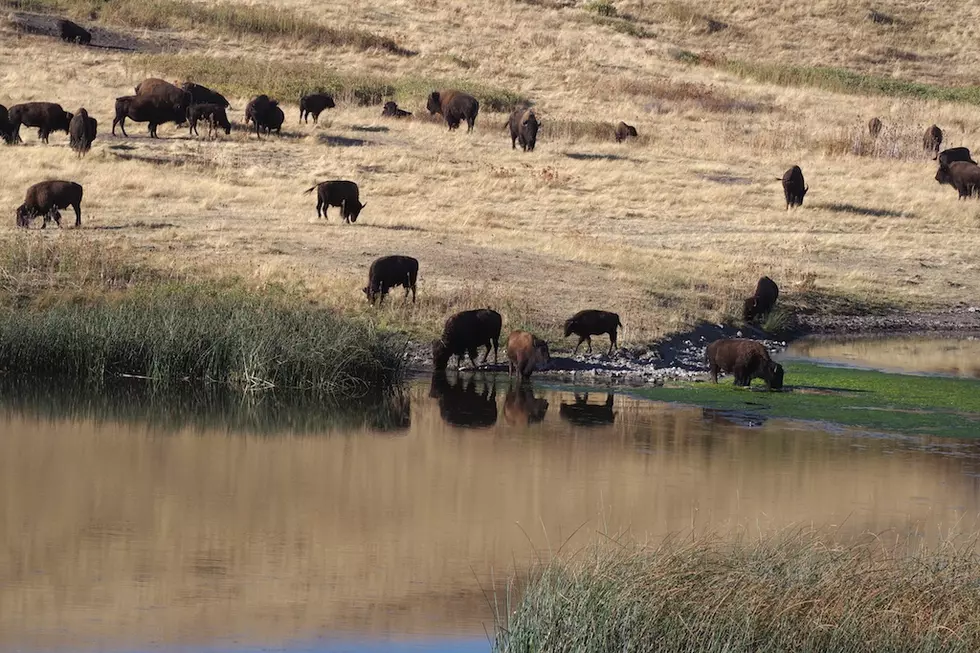
Gianforte appeals BLM decision on American Prairie bison grazing
Gov. Greg Gianforte has appealed the Bureau of Land Management’s decision to allow American Prairie to graze bison on 63,500 acres of land in Phillips County, according to a filing submitted Thursday and included in a Monday press release.
State land makes up some of the acreage which is managed by the federal government. The decision, green lit in late July, meant that American Prairie will gradually increase its bison herd from 800 to around 1,000 in the next three years.
“Regardless of whether BLM labels the herd ‘indigenous animals,’ ‘indigenous livestock,’ ‘domestic indigenous animals,’ or ‘domestic indigenous livestock’ the agency’s action exceeds its authority, violating statute and rule. The herd in question is not livestock under federal law and the permit contemplated cannot be authorized,” Gianforte argues.
Additional appellants are other state departments including Agriculture, Livestock, Natural Resources and Conservation, as well as Fish, Wildlife and Parks.
After BLM announced their decision in late July, Gianforte said he shared “Montanans’ frustration with the BLM’s woeful and repeated failures to properly engage Montanans and act within the bounds of its authority on this issue.”
Gianforte reiterated the argument surrounding BLM’s authority in the filing, saying the decision “is premised on deficient National Environmental Policy Act (NEPA) analysis” as well as listing it as “unreasonable, arbitrary, capricious and unlawful.”
“BLM’s NEPA analysis is fundamentally flawed because it does not take the requisite ‘hard look’ at APR’s proposal,” Gov. Gianforte argues.
Gianforte has been vocal about a perceived lack of public engagement from the agency in the process.
In the July decision, Malta Field Manager Tom Darrington pushed back against this assertion from the governor, noting a month-long public scoping period in 2018, as well as in-person meetings and extending the public comment period.
“Given the level of public interest in the proposal, BLM initiated an increased effort to engage local and state cooperators and the interested public to the greatest extent possible. Consultation, cooperation and coordination requirements were met, or exceeded prior to (issuing this decision),” Darrington wrote.
Gianforte has been making this argument surrounding the BLM’s authority, public engagement and perceived negative impacts of permitting the grazing since last year, when he joined other state agencies to submit public comment to BLM about these concerns.
“Any action that could threaten the stability of Montana’s livestock industry, its ability to market healthy products, or the strength of its socioeconomic fabric deserves to be fully vetted and analyzed in an honest, thorough manner,” Gianforte said in comments made in 2021.
Environmental assessments of American Prairie’s proposal found that the bison grazing would not impact the land in any significant way. BLM praised the proposal, “Those areas being grazed by bison will experience improvements to vegetative communities, diversified vegetation and an increase in native plant species.”
Gianforte argued in the conclusion of the appeal that if the decision were made effective, it would cause “immediate and irreparable harm to the State and to the public.”
